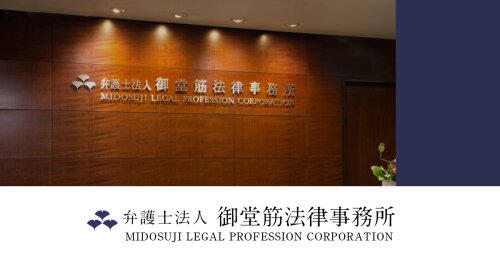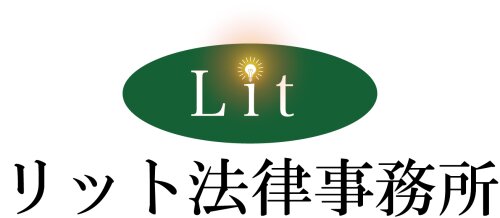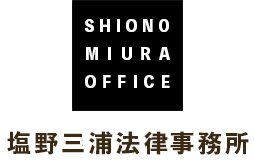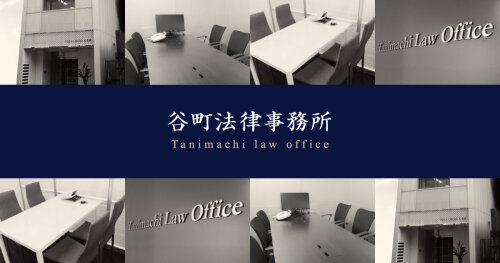Best Antitrust Lawyers in Osaka
Share your needs with us, get contacted by law firms.
Free. Takes 2 min.
List of the best lawyers in Osaka, Japan
About Antitrust Law in Osaka, Japan
Antitrust law in Osaka, Japan is designed to maintain fair competition in the marketplace and prevent businesses from engaging in unfair trade practices. The primary aim of these regulations is to promote consumer welfare by ensuring that companies operate fairly and do not abuse their market power. These laws apply to both domestic and international businesses operating in Japan, including those within Osaka, a major commercial hub. The Japan Fair Trade Commission (JFTC) is the main governmental body responsible for enforcing antitrust regulations throughout Japan, including the Kansai region where Osaka is located.
Why You May Need a Lawyer
There are a variety of situations where legal assistance in antitrust matters becomes essential. Companies or individuals may face investigations by the JFTC or other regulatory agencies for suspected violations of antitrust laws, such as price fixing or collusion. Mergers and acquisitions are also closely scrutinized to ensure they do not restrict market competition. Additionally, businesses may require legal advice to review contracts and ensure compliance with complex rules regarding joint ventures, exclusive dealing, or distribution agreements. Victims of unfair competition, such as businesses harmed by anti-competitive behavior, might also seek legal remedies or file lawsuits. A lawyer with expertise in antitrust can help navigate investigations, provide compliance training, negotiate settlements, and represent clients in court or before regulatory bodies.
Local Laws Overview
Antitrust law in Japan is governed primarily by the Act on Prohibition of Private Monopolization and Maintenance of Fair Trade, often known as the Antimonopoly Act or AMA. There are several key aspects to local antitrust regulations that apply in Osaka:
- The law prohibits private monopolization, unreasonable restraint of trade (including cartels and collusive bidding), and unfair trade practices.
- Mergers and acquisitions which may substantially restrain competition require notification to and approval by the JFTC.
- The law targets not only explicit agreements but also coordinated behavior among businesses that has the effect of restricting fair competition.
- Penalties can include administrative orders, criminal sanctions, and compensation for damages.
- Recent amendments have enhanced leniency programs for whistleblowers and clarified penalties for violations.
- The local Osaka government supports the enforcement of antitrust laws in collaboration with national authorities.
Understanding these regulations is vital for effectively operating within Osaka's vibrant business environment. Compliance programs and proactive legal reviews are commonly recommended for local and international companies.
Frequently Asked Questions
What is considered a violation of antitrust laws in Osaka?
Violations include activities like price fixing, bid rigging, market sharing, forming cartels, or abusing a dominant market position. These actions are prohibited whether they involve formal agreements or coordinated conduct among competitors.
Which business activities are most closely monitored under antitrust law?
Mergers, acquisitions, joint ventures, exclusive supply or distribution agreements, and any cooperation between competitors that could restrict fair competition are closely watched by regulators.
How does the JFTC investigate potential antitrust violations?
The JFTC can initiate investigations based on complaints, reports from whistleblowers, or its own monitoring. Investigations may include on-site inspections, document reviews, and interviews with involved parties.
Can individuals or just companies be held liable under antitrust law?
Both companies and individuals, such as managers or employees involved in prohibited conduct, can face penalties including fines and, in serious cases, imprisonment.
Are foreign companies operating in Osaka subject to Japanese antitrust laws?
Yes, foreign businesses operating in or affecting Japanese markets, including those based in Osaka, must comply with Japan’s antitrust laws.
What penalties can be imposed for violating antitrust laws?
Penalties may include orders to cease prohibited conduct, payment of surcharges, public disclosure of violations, and in some cases, criminal charges with fines or imprisonment.
What is a leniency program?
The leniency program encourages companies and individuals involved in cartels or collusion to voluntarily report their activities to the JFTC in exchange for reduced penalties.
How can a business prevent violating antitrust laws?
Implementing a robust compliance program, providing regular employee training, conducting contract reviews, and consulting with antitrust lawyers are recommended steps for prevention.
Can victims of unfair competition take legal action?
Yes, businesses or individuals who have suffered losses due to another party’s anti-competitive behavior may seek compensation through civil litigation.
How long do investigations usually take?
Timing can vary depending on the complexity of the case, but investigations may take several months to conclude, especially if formal charges or litigation are involved.
Additional Resources
If you need more information or support regarding antitrust issues in Osaka, the following resources may be helpful:
- Japan Fair Trade Commission (JFTC) - The main governmental agency for antitrust enforcement and guidance
- Osaka Chamber of Commerce and Industry - Provides information and seminars related to business regulations and compliance
- Japan Federation of Bar Associations - Can assist in finding qualified antitrust lawyers
- Kansai Economic Federation - Offers resources and networking opportunities regarding legal compliance in the region
- Legal consultation centers in Osaka - Provide guidance and referral services for individuals and businesses
Next Steps
If you require legal assistance in antitrust matters in Osaka, start by gathering any relevant documents, contracts, or correspondence related to your issue. Identify the specific concerns or questions you have regarding compliance or possible violations. It is strongly advised to consult with a lawyer who specializes in antitrust law as early as possible to ensure your interests are protected and to avoid unintended legal consequences. You may contact professional associations, local bar associations, or reputable law firms in Osaka to arrange an initial consultation. A lawyer can assess your situation, explain your rights and obligations, and devise a strategy to address any investigations or disputes. Taking swift and informed action is essential when dealing with antitrust matters to minimize risks and promote fair competition.
Lawzana helps you find the best lawyers and law firms in Osaka through a curated and pre-screened list of qualified legal professionals. Our platform offers rankings and detailed profiles of attorneys and law firms, allowing you to compare based on practice areas, including Antitrust, experience, and client feedback.
Each profile includes a description of the firm's areas of practice, client reviews, team members and partners, year of establishment, spoken languages, office locations, contact information, social media presence, and any published articles or resources. Most firms on our platform speak English and are experienced in both local and international legal matters.
Get a quote from top-rated law firms in Osaka, Japan — quickly, securely, and without unnecessary hassle.
Disclaimer:
The information provided on this page is for general informational purposes only and does not constitute legal advice. While we strive to ensure the accuracy and relevance of the content, legal information may change over time, and interpretations of the law can vary. You should always consult with a qualified legal professional for advice specific to your situation.
We disclaim all liability for actions taken or not taken based on the content of this page. If you believe any information is incorrect or outdated, please contact us, and we will review and update it where appropriate.















